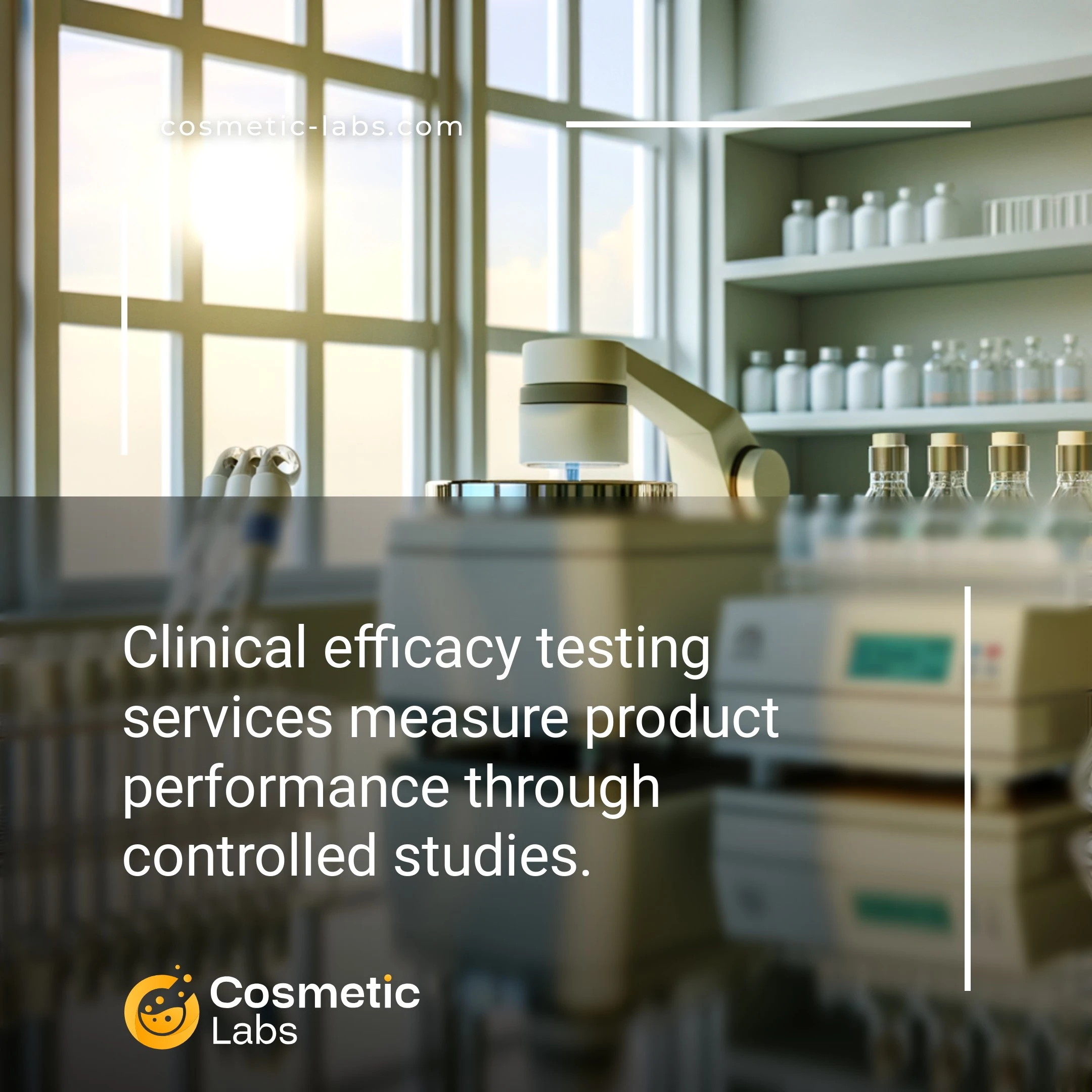Clinical Efficacy Testing Services for Beauty Brands

What is Clinical efficacy testing?
Clinical efficacy testing services measure how well your cosmetic products perform their intended functions through controlled studies on human volunteers. Labs conduct these tests using standardized protocols—like measuring hydration levels before and after moisturizer application or tracking wrinkle reduction over 8-12 weeks. What many brands don’t realize is that efficacy data becomes your strongest marketing asset, providing the scientific backing needed for product claims and consumer trust in today’s evidence-driven beauty market.
Why do you need this service?
Without clinical data, your marketing claims risk regulatory penalties and consumer lawsuits. Professional efficacy testing provides the scientific evidence required by major retailers, protects against competitor challenges, and builds consumer trust that drives repeat purchases. In today’s evidence-based beauty market, clinical validation isn’t just an option—it’s your competitive edge.
Who provides Clinical efficacy testing services?
All cosmetic labs providing Clinical efficacy testing services
There is no company providing these services at the moment.
Clinical Efficacy Testing Services
Clinical efficacy testing validates your cosmetic products’ performance claims through controlled human studies. Labs on our platform conduct consumer testing, instrumental measurements, and clinical trials to prove your products deliver the results you promise customers.
From preclinical research to clinical claims validation
Clinical efficacy testing provides scientific validation of your product’s performance claims through objective, measurable data. Labs on our platform use advanced instrumentation to quantify specific improvements—such as 25% wrinkle reduction, 40% increase in skin hydration, or 15% improvement in skin elasticity—under controlled clinical conditions. These studies generate the statistical evidence required for regulatory compliance and substantiate marketing claims with reproducible, peer-reviewed methodologies.
Instrumental Measurements and Biomarker Analysis
Labs use specialized equipment to measure skin parameters like hydration, elasticity, and barrier function. Corneometer readings, transepidermal water loss measurements, and sebum production analysis deliver objective data for product efficacy claims.
Common measurements include:
- Skin hydration levels (capacitance readings)
- Wrinkle depth analysis using 3D imaging
- Melanin index for brightening claims
- pH monitoring for barrier repair products
Connect with labs on our platform to design clinical studies that validate your product’s specific benefits and support your go-to-market strategy.
16 subcategories of Clinical efficacy testing services
There are no results matching your search
Practical Applications of Clinical Efficacy Testing Services
Cosmetic brands rely on clinical efficacy testing applications to validate product claims and meet regulatory requirements across global markets.
Anti-Aging Product Validation
Labs conduct wrinkle reduction studies using 3D imaging systems like PRIMOS and Visia to measure skin texture changes over 8-12 week periods. These tests quantify improvements in fine lines, elasticity, and firmness using standardized protocols. Clinical data from these studies supports marketing claims like “reduces wrinkles by 23% in 8 weeks” on product packaging.
Dermatologist-supervised trials can involve 30-50 participants who apply products twice daily while researchers document skin changes through digital photography and biophysical measurements. Results provide the scientific backing needed for premium anti-aging positioning.
Sensitive Skin Product Development
Patch testing protocols help brands develop products for reactive skin types through controlled exposure studies. Labs use standardized allergen panels and custom formulation testing to identify potential irritants before market launch. These safety assessments prevent costly recalls and build consumer trust.
Hypoallergenic claims require documented evidence from dermatological testing facilities that monitor participants for 48-72 hours post-application. This testing validates product safety for sensitive populations and supports therapeutic cosmetic positioning.
| Test Type | Duration | Participants | Key Measurements |
|---|---|---|---|
| Anti-aging efficacy | 8-12 weeks | 30-50 | Wrinkle depth, elasticity, hydration |
| Patch testing | 48-72 hours | 20-30 | Irritation score, erythema index |
| Acne treatment | 12-16 weeks | 40-60 | Lesion count, sebum production |
| UV protection | Single session | 10-15 | SPF value, UVA protection factor |
Ready to validate your product claims with clinical testing? Connect with experienced cosmetic labs on our platform to discuss your specific efficacy testing needs and timeline requirements.
